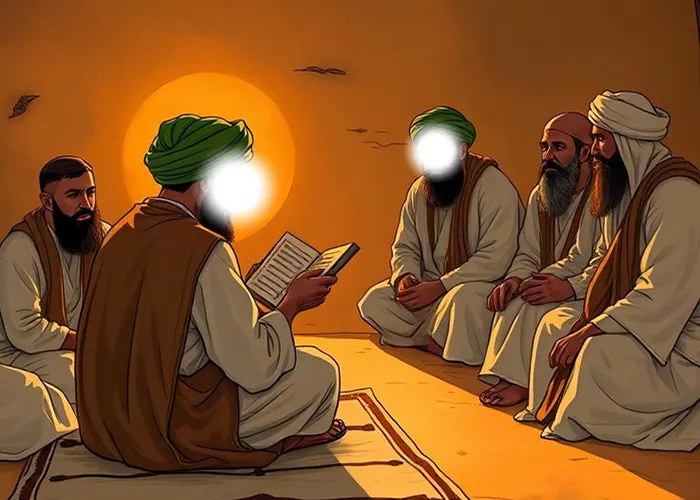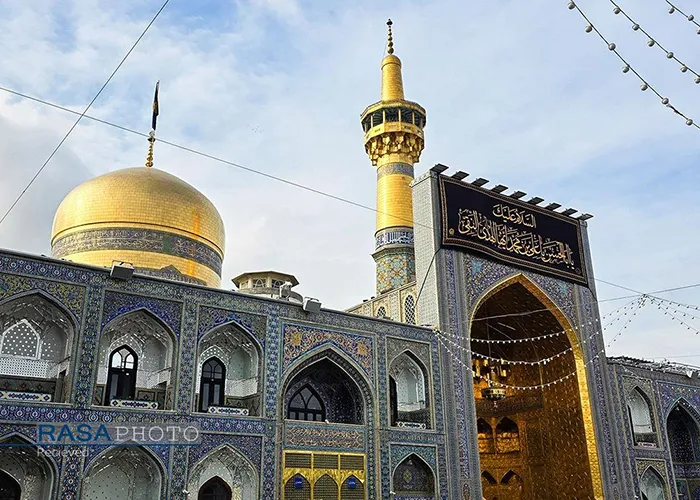Ayah Of The Week – Volume02 Issue04
The Everlasting Impact of the Prophet’s Mission: Guidance for Today’s Youth, Families, and Communities
Introduction
On January 28, 2025, which coincides with the 27th of Rajab, we commemorate the great event of the Prophetic Mission (Mab’ath) of Prophet Muhammad (PBUH). This event marks the beginning of his mission to guide humanity. As we reflect on this, we turn to the Qur’an to find profound guidance. In Surah Al-Jumu’ah, verses 2 and 3, Allah highlights the essential aspects of the Prophet’s mission: to recite divine revelations, purify souls, and impart knowledge of the Book and wisdom. These verses are not only a description of the Prophet’s role in his time but also provide timeless lessons for us today.
هُوَ الَّذِي بَعَثَ فِي الْأُمِّيِّينَ رَسُولًا مِنْهُمْ يَتْلُو عَلَيْهِمْ آيَاتِهِ وَيُزَكِّيهِمْ وَيُعَلِّمُهُمُ الْكِتَابَ وَالْحِكْمَةَ وَإِنْ كَانُوا مِنْ قَبْلُ لَفِي ضَلَالٍ مُبِينٍ ﴿۲﴾ وَآخَرِينَ مِنْهُمْ لَمَّا يَلْحَقُوا بِهِمْ وَهُوَ الْعَزِيزُ الْحَكِيمُ ﴿۳﴾
“It is He who has sent among the unlettered a Messenger from themselves, reciting to them His verses, purifying them, and teaching them the Book and wisdom, although they had been before in manifest error. And to others of them who have not yet joined them. And He is the Exalted in Might, the Wise.” (Qur’an, Surah Al-Jumu’ah, 62:2-3)
The Relevance of This Verse for Today’s Society
The message of these verses is extremely significant for our contemporary world, where individuals and communities are facing numerous challenges. The Qur’an’s emphasis on the Prophet’s role in reciting divine verses, purifying souls, and teaching wisdom and knowledge can serve as a guiding principle for individuals today. In particular, it offers multiple messages for different segments of society, from youth to religious leaders. The mission of the Prophet was not only to deliver knowledge but also to nurture humanity’s moral and spiritual growth, aspects of life that continue to be needed in our current age of materialism and distractions.
This verse calls us to remember that divine guidance is not only a historical event but is still present through the teachings of the Prophet. His message is eternal, transcending time and space. For today’s Muslim community, especially in Western countries, where they may face challenges related to identity and values, the mission of the Prophet offers a blueprint for navigating the complexities of modern life while adhering to ethical and spiritual principles.
Educational Messages of These Verses for Teenagers and Youth:
- Improving Your Morality and Character
The core goal of the Prophet’s mission was to elevate human character and save humanity from moral degradation and weaknesses. As the Prophet himself stated: «بعثت لاتمّم مکارم الاخلاق» “I was sent to perfect good character”. Thus, young people are encouraged to focus on refining their personal conduct, nurturing kindness, respect, and integrity in their daily lives.
Practical Challenge: Each day, aim to perform one act of kindness without expecting anything in return. Reflect on how small acts can elevate your moral character.
- Using Your Mind for Deep Thought
The Prophet’s mission was not just about religious rituals but about reviving human intellect. Islam calls upon every individual to use their reasoning and intellect. The Qur’an repeatedly invites people to think, reflect, and ponder, as evidenced by the phrases “Do you not think?” and “Those who have understanding.”
Practical Challenge: Set aside time every day for deep thinking, whether it’s through reading, reflecting on the Qur’an, or engaging in discussions that stimulate your intellectual growth.
Educational Messages of These Verses for Parents:
- Fostering a Home of Learning, Purification, and Taqwa
The Prophet’s mission included (in order): 1. Reciting the Qur’an, 2. Purifying souls, and 3. Teaching knowledge (یتلوا… یزكّیهم… یعلّمهم). For parents, this highlights the importance of creating a nurturing home environment that emphasises these values. The sequence in the verse “reciting, purifying, and teaching” suggests that each element supports the other or work as the pre-requirement of doing the next one. Families should prioritise Quranic recitation, spiritual purification through moral guidance, and the pursuit of knowledge.
Practical Challenge: Create a routine in your household where every member participates in at least one of the three essential actions: reading the Qur’an, reflecting on its meanings, and engaging in learning.
- Raising Children in Difficult Environments
Despite living in an environment that may be filled with moral and ethical challenges, parents are called to continue their educational and moral efforts. The verse reminds us that even when the society around us is in error (و ان كانوا من قبل لفى ضلال مبین), our mission to educate and purify should not cease.
Practical Challenge: Teach your children the importance of sticking to Islamic principles even when surrounded by negative influences.
Educational Messages of These Verses for Religious Leaders and Imams:
- Remind Your Congregation That the Mission of the Prophet Continues
The mission of Prophet Muhammad (PBUH) is still relevant today. “And to others of them who have not yet joined them” (لَمّا یَلحَقوا بِهِم) refers to the continuous spread of the Prophet’s message to every generation. Imams and religious leaders must remind their followers that they are still part of the divine mission and that the teachings of the Prophet are always available for guidance and reflection.
Practical Challenge: Regularly emphasise in your sermons that the Prophet’s mission is ongoing and that each individual is part of this larger spiritual movement.
- Teach and Purify for Spiritual and Intellectual Growth
Like the Prophet, religious leaders are tasked with the dual roles of teaching and purifying the hearts of their congregants. This involves both imparting knowledge of the Qur’an and fostering a deeper understanding of how to apply that knowledge to one’s daily life, especially in the modern world.
Practical Challenge: Develop a programme that combines both spiritual purification (through worship and ethical practice) and intellectual growth (through educational workshops or lectures on Qur’anic principles).
editor's pick
news via inbox
Subscribe to the newsletter.




